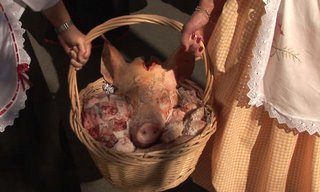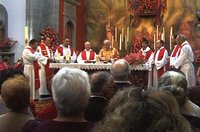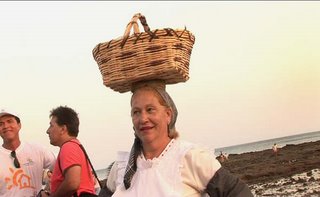
A film & multimedia project to capture real Canarian folk culture on island of Gran Canaria, Spain. An exclusive view into the "test tube" showing how a partly indigenous culture, threathened by tourism and rapid economic growth, can cope with the changes of the times and evolve into the future... without losing itself in the process.
“Crafts & Fiestas on Gran Canaria” is the first project of its kind to capture and present genuine Canarian folk culture to foreign audiences in an entertaining documentary film. Using the most modern high definition video technology, we will be presenting the “real Gran Canaria” in two, one hour long DVDs in English, German, Swedish and Spanish. The DVDs will be for sale as “the must have” souvenir of Gran Canaria, to all who want to go deeper - beyond the beaches, bars and hotels and into the real, natural Gran Canaria. Experience the passion,the fun and the depth of Europe’s most buzzing cultural region - see all the typical and non-typical fiests, the folk dances, the music and the traditional crafts in this unique DVD and full colour book project.
The film clip above is a short demo "La Vara del Pescao" - The Fiesta of the Fishing Rod - which is held every year in memory of the Canarian fishermen. Thousands of fresh sardines are given away on the beach, while ancient dances are performed to music played on primitive instruments.
We propose to make two DVD-films in cooperation with La Fedac. One will cover both new and traditional fiestas on Gran Canaria, the other will cover the traditional crafts of the island.
These films will, as well as serving as a guide to traditional culture on Gran Canaria, also display key aspects of natural scenery and architecture related to the areas visited.
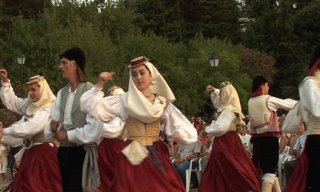
We will show beautiful scenery of the island, and touch upon many of the known tourist areas and attractions, but with a focus on local culture. They will contain something from every part of the island, showing the important points of interests from the various towns and municipalities. However, focusing more on the mountainous regions and the deep wilderness and desert areas than on the more known tourist areas, they will also serve as an alternative tourists’ guide for those wishing to go deeper into what the island has to offer than what most travel companies are currently focused on.
The two films are estimated to be approximately 30 – 40 minutes each, for a total of 60 – 80 minutes playing time.
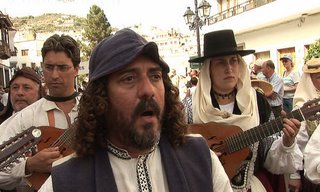
The films will be edited in a fast pace documentary style with a range of scenes displaying the richness of cultural life and scenery from all of Gran Canaria.
The DVDs will be for sale in a minimum of four languages: English, German, Swedish and Spanish. We also intend to create an internet Web-TV site and one or several documentary films for television and film festivals.
The Spanish versions of the DVDs will be hosted by well known Canarian folk singer Marivi Cabo. Fiestas on Gran Canaria.
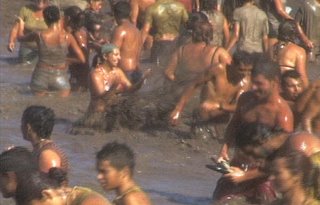
This film will cover 10 – 12 of the most significant fiestas on Gran Canaria throughout the course of one year. It will be a guide to both the traditional and religious life of the island as well as to some of the newer expressions of festivities, such as the “mud bath festivals” and other secular fiestas.
Only events categorized by La Fedac as official fiestas, specific to Gran Canaria will be covered in this phase of the project.
The film will contain images from the fiestas and the surrounding areas of the regions visited. The story will be carried through the use of interviews with both the people behind the fiestas, and the visitors of each fiesta, along with the voice over.
This film will also provide some insight in to the rich life of festivities on Gran Canaria, some historical back ground and an analysis of why fiestas still to this day play such an important role in the life of the island.
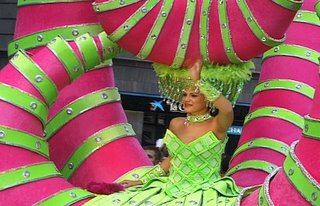 CLICK ON IMAGE TO SEE FILM CLIP
CLICK ON IMAGE TO SEE FILM CLIP
The film clip above is from the Carnival in Las Palmas, which is the largest carnival outside of Brazil. One of the key features of the Canarian carnival, is the tradition of men dressing up as women, and sometimes, women dressing up as men!
Crafts on Gran Canaria:
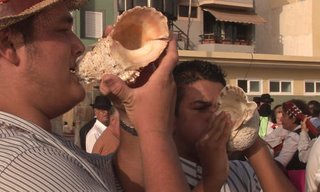
This film will cover 10 – 12 of the most significant crafts on Gran Canaria, from knife making and pottery to weaving, sewing and instrument making. Through the use of images, graphics and maps, viewers will be oriented to both producers and where crafts can be viewed.
Interwoven into the story, will be an outline of some of the islands most interesting folk music & dance groups. The film crew will connect the making of some of the different instruments and costumes to real, live performances of folk music. As many connections as possible will be used; the Canarian knife which cuts the leather, the bone needle which sews the dress, the pottery used in a traditional ceremony, etc.
The film will portray the making of the crafts items, the practical uses of them and also provide a very brief history. The main focus will be on the crafts people and folk musicians, with interviews with the people of the different regions.
The “philosophy” of the project:
Many people in the western world feel they have lost touch with their own cultural origins. Our modern society changes very quickly, and many important traditions in
This does not seem to be the case on Gran Canaria. Here, to a great extent, traditions are no longer being lost; but rather being preserved with a renewed interest, and new fiestas are also being created in many of the small villages. There is a strong passion for traditional culture among young people on Gran Canaria, and the richness of traditions is stronger here than in most other parts of
As film makers, we hope to make a film which mirrors some of the passion Canarians feel for their culture. Our hope is therefore that this film will serve as an inspiration to many, and set a positive example of how this region, so heavily exposed to both tourism and rapid economic changes, can continue to preserve so much of it’s original culture and keep it alive.
Although many older Canarians feel much has been lost of the agricultural traditions on Gran Canaria, there is a generational shift happening on the island. Young people are carrying on many of the traditions of their ancestors, despite living in cities and working modern jobs. Traditional crafts are being offered at schools and the university, creating a strong sense of solidification of traditional knowledge throughout the island. The intention of our film is to focus on the positive changes, on how traditional culture evolves into the future.
Rather than merely being a dry document of the culture of the past, the film will raise questions, both of the viewers and the participants of the film, questions like “What is Canarian culture?”, “What is the Guanche lineage” and “Why is it important to continue this tradition?”

Focus on quality:
With the help of our collaborators at La Fedac we will include artists and musicians who have a genuine interest and a documented knowledge of the authenticity and history of their artistic fields.
Target groups and distribution:
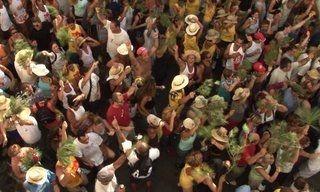
The intent is to produce a project which will appeal to foreign tourists, as well as to Spanish people from the mainland and elsewhere, as an alternative travel guide for visitors who want to go beyond the obvious attractions of the beaches and bar life of the south.
The documentaries will be primarily presented as a DVD and distributed locally at bookstores, shopping centers, hotels, tourist information boots, and all other possible channels dealing with culture and travel, such as air lines and trade fairs.
Outside of Spain, a diffferent cut of the project will also be targeted towards television networks and filmfestivals.
The intended target group is visitors to Gran Canaria and others with an interest in learning about Gran Canaria beyond what the tourist companies are currently presenting. The intent is to make the film accessible also to those without previous introduction to traditional life on Gran Canaria.
Since the project may also touch local Canarian audiences and inspire a renewed interest in their heritage, it is important to provide a Spanish version, along with versions in some of the major tourist languages.
Production plan:


